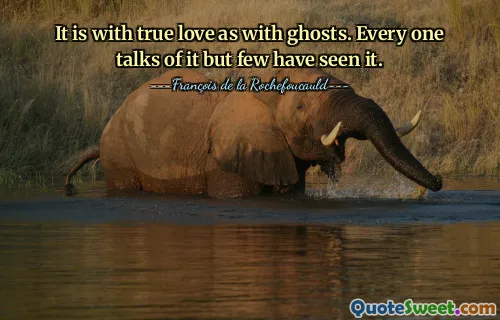You? I start to laugh. Look at you. You're a knock-out. You're smarter than I am. You're on a career track and you're family-centered and you probably even can balance your checkbook.And I'm lonely, Cambell. Jewel adds. Why do you think I had to learn to act so independent? I also get mad too quickly, and I hog the covers, and my second toe is longer than my big one. My hair has its own zipcode. Plus, I get certifiably crazy when I've got PSM. You don't love someone because they're perfect, she says. You love them in spite of the fact that they're not.
The speaker acknowledges the impressive qualities of the other person—intelligence, career ambition, family orientation—and humorously contrasts those traits with their own struggles and insecurities. They express feelings of loneliness and the pressure to appear independent, revealing a vulnerability that underpins their bravado. This candidness about their flaws, from being easily irritated to dealing with personal quirks, creates a relatable and endearing characterization.
Furthermore, they emphasize the essence of love, suggesting that true affection transcends perfection. The idea that love is unconditional highlights the importance of accepting each other’s imperfections, reinforcing the theme that genuine connection is rooted in understanding and compassion. This perspective invites reflection on the nature of relationships and the complexities of human emotions.

